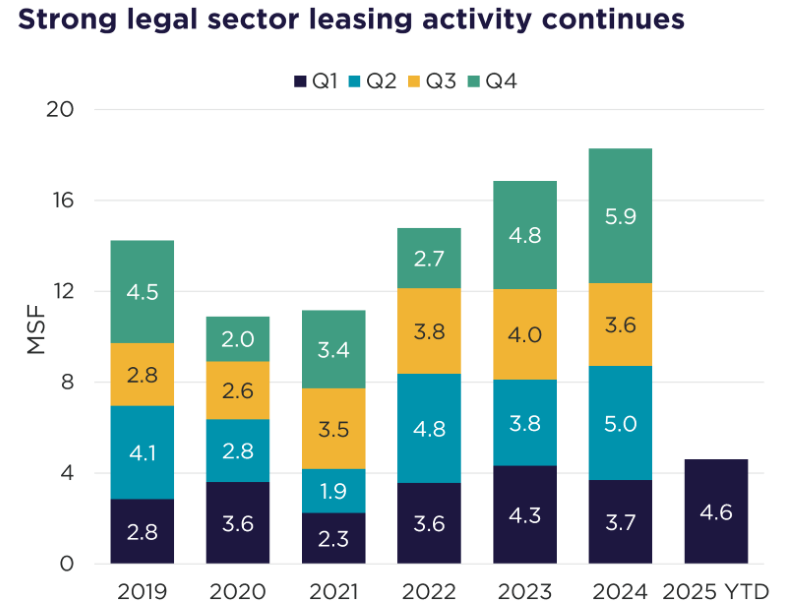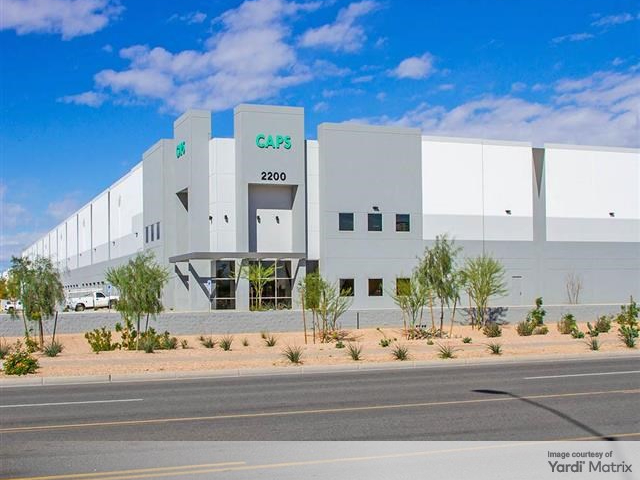Investors Still Cautious After Brexit Delay
Commercial real estate executives say capital is still flowing into London and the U.K., particularly for those making long-term plays, but the recent decision to postpone Brexit is keeping some on the sidelines for now.

Matthew Goulding, Portfolio & Regional Manager Europe for Listed Real Estate Securities, CenterSquare Investment Management. Image courtesy of CenterSquare Investment Management
While uncertainty about Brexit continues to hang over the U.K., as the deadline to leave the European Union was pushed off to late October, commercial real estate executives on both sides of the Atlantic continue to see bright spots in local and global markets, even as some investors proceed with caution.
“We expect occupier and investor sentiment to remain cautious, at least in the very near term as the heightened uncertainty continues to hinder business and investment decisions. While there will be activity, we expect this to remain depressed compared to a scenario where a solution was reached. Those who can continue to defer major decisions will do so, amid the prolonged activity,” Daryl Perry, Avison Young’s head of research and client engagement in London, told Commercial Property Executive.
“A lot of capital that would have been investing here is still waiting for a bit more clarity,” agreed Matthew Goulding, portfolio & regional manager Europe, Listed Real Estate Securities, at CenterSquare Investment Management LLC.
But both Perry and Goulding say there are investment opportunities in the U.K., particularly London, for both opportunistic as well as long-term investors. They point to industrial, student housing, Private Rented Sector, hotels and health care as sectors where there is still investor appetite. Goulding noted health care, PRS and student housing “are more immune to Brexit and tend to have more political support from both sides of the political spectrum” in the U.K.
“Opportunistic investors with long-term confidence in the U.K. market will find more opportunities creeping up in a less congested market,” Perry said. “Brexit will undoubtedly continue to play a large role in short-term investment decisions however, investors are unlikely to shy away from a transparent and liquid market, particularly for long-term investments,” Perry added. “The key question many investors will be contemplating is not whether to invest in the U.K. but when to invest. If the uncertainty dissipates, then we expect to see resumption in occupier and particularly investment decisions.”
Perry said London’s office market for the first quarter was “quieter than normal as occupiers and investors who could hold off their decisions until after the supposed Brexit date, did so.”
He said transaction volumes totaled £2.8 billion (nearly $3.7 billion), down 56 percent from the fourth quarter of 2018 and a 31 percent drop on the 10-year average. The total number of transactions for the first quarter of 2019 totaled 38, which he said was also a “dramatic fall on previous quarters and on the 10-year average.” Investment volumes elsewhere in the U.K., the so-called Big Nine cities, were also low for the first quarter.
Savills reported higher numbers for commercial property investment in Central London, including the City and West End, stating it was £3.2 billion ($4.2 billion) in the first quarter, up 28 percent from the first quarter of 2018 and higher than the first quarter of 2015, before the U.K.’s referendum to leave the EU.
Investor interest
The Savills report notes that despite the Brexit uncertainty, there had been significant capital flows into Central London real estate in the first quarter. The firm cited Citigroup’s acquisition of its EMEA headquarters at 25 Canada Square in Canary Wharf for approximately £1.10 billion ($1.4 billion), as evidence of continued confidence in the Central London market.
Stephen Down, head of Central London investment at Savills, said in a prepared statement that deals offered to the market “still seem to draw in a healthy level of prospective buyers, both domestic and international.”
Mark Charlton, head of research and forecasting at Colliers International, said in a 2019 outlook that while there had been fewer office deals in Central London “those completed were generally bigger transactions.” He said the trend was likely to continue throughout 2019. “The reality is that London is a global city and remains an attractive place for major institutional, private equity and sovereign wealth investors from both the U.K. and abroad,” Tony Horrell, CEO, U.K. & Ireland at Colliers International, stated in the same report.
A JLL research report on gateway cities released in January noted that for the second year in a row, London topped the list of cities across the globe with the most direct commercial real estate investment. Jeremy Kelly, JLL’s research director, said those volumes had been boosted by high levels of foreign investment, with almost half of the purchases in 2018 involving a foreign buyer.
Goulding noted rents and yields for prime central London assets have remained fairly stable. “We have seen 3 percent increase in capital values in the city of London,” Goulding said.
Housing concerns
One sector that has been impacted by concerns over Brexit has been the residential housing market, which already had longstanding issues with affordability and stock available for investment.

Joseph Iacono, Managing Partner, Crescit Capital Strategies. Image courtesy of Crescit Capital Strategies
“Those closely monitoring global real estate trends have obviously witnessed a significant negative impact on the residential sector in London following continued uncertainty around Brexit,” noted Joseph Iacono, managing partner of Crescit Capital Strategies in New York City. Iacono said he has seen “corporate migration or expansion from London to other European markets over this time” but so far those investors haven’t turned to the U.S.
“As an active lender for middle market transactions involving a wide range of asset classes, Crescit has not yet seen an impact to transaction activity or foreign investor interest in the U.S. CRE debt market as a result of Eurozone politics,” Iacono told CPE. “That said, we see potential for positive impact to U.S. CRE activity should global capital flows seek safe havens such as the U.S. as a result of Brexit.”







You must be logged in to post a comment.